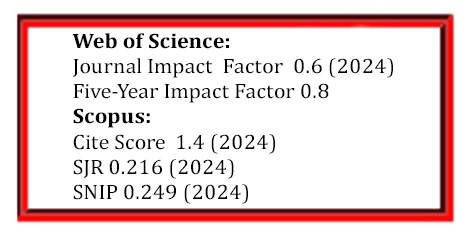Effect of Fiber-matrix Interface Decohesion on the Behavior of Thermoset and Thermoplastic Composites Reinforced with Natural Fibers: A Comparative Study
DOI:
https://doi.org/10.5755/j02.ms.28615Keywords:
alfa fiber, wood fiber, phenolic composite, polyetherimide (PEI) composite, interface engineering, damageAbstract
In this article, a comparative study was carried out on two types of thermosetting and thermoplastic matrices to study the effect of the fiber-matrix interface damage on the behavior of thermosetting and thermoplastic composites reinforced by the same natural alfa and wood fibers. The genetic modeling was based on the probabilistic formalism of Weibull. The results have been compared with those obtained by the nonlinear acoustic technique, the two results found to coincide perfectly. The numerical simulation also shows a good concordance with the real behavior of the materials studied, and shows that thermosetting composites are the most resistant to applied thermal stress by 21% compared to thermoplastic composites. Statistical analysis demonstrates that the correlation coefficient values found are very close to 1 (0.964 and 0.973), these values are very satisfactory, and confirm that the results obtained by the genetic model and the nonlinear acoustic technique are in very good agreement with the statistical analysis data. The experimental work presented by Antoine Le Duigou et al. and the work of Bodros et al. have shown that the use of natural fibers greatly improves the mechanical properties of composite materials.
Downloads
Published
Issue
Section
License
The copyrights for articles in this journal are retained by the author(s), with first publication rights granted to the journal. By virtue of their appearance in this open-access journal, articles are free to use with proper attribution in educational and other non-commercial settings.



